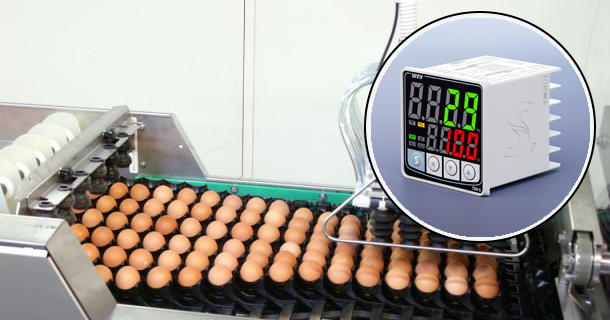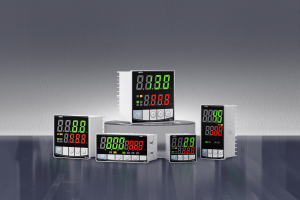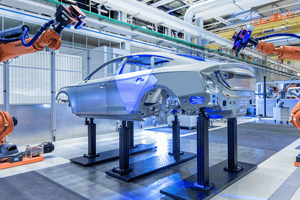How to Achieve Accurate Temperature Control in Your Processes: Tips & Techniques
Learn the art and science of precise temperature regulation using proven practices and advanced techniques. Enlist professional assistance if your work involves manufacturing, food processing, pharmaceuticals or HVAC systems as accurate temperature management is of vital importance for their processes.
Introduction
Temperature control plays an integral role across industries, impacting product quality, efficiency and safety. From manufacturing facilities and food production lines to HVAC systems - maintaining precise temperatures for optimized operation is of utmost importance for optimal operation. In this article we present best practices and advanced techniques which facilitate accurate temperature regulation within processes.
1. Understanding Temperature Control
This term refers to regulating a system or process's temperature according to an established target set point, in order to achieve consistent product quality, increased efficiencies and compliance with safety regulations. Precise temperature regulation ensures product consistency as well as higher efficiency standards that comply with safety requirements.
Key Elements of Temperature Control Systems: Sensors, Controllers and Actuators form the core elements of temperature control systems; sensors measure actual temperatures while controllers process and make any required changes, while actuators keep desired levels constant.
2. Tips to Achie Accurate Temperature Control
Select an Appropriate Sensor (thermocouples and RTDs (Resistance Temperature Detectors) are two popular temperature measurement devices used in temperature regulation applications; RTDs tend to offer greater accuracy and stability). When choosing between them, ensure each provides accurate readings that deliver their data consistently for effective temperature regulation to occur successfully.
Calibration Is Key for Temperature Sensors and Controllers in Climate Control Systems: Calibration is crucial in maintaining accuracy when it comes to temperature sensors and controllers, including those found within climate control systems. Calibration involves comparing readings against an established standard in order to make any adjustments needed in order to deliver precise readings over time; regular calibration allows temperature regulation systems such as RTUs to provide precise temperature readings over time.
Temperature Control Systems: To obtain precise measurements of process temperatures accurately requires designing and installing temperature control systems with sensors placed precisely where they will produce results that meet accuracy criteria. Insulation or shielding materials may provide added precision during measurements by protecting measurements from external influences that might alter readings for greater precision when taking readings.
Environmental Considerations: Ambient temperatures and environmental variations such as humidity can have a great effect on readings; to achieve accurate temperature regulation it's crucial that these variables be factored into design and installation of temperature control systems. By providing protective enclosures or compensating for environmental variations we may help achieve precise regulation.

3. Advanced Techniques and Technologies
PID (Proportional-Integral-Derivative) controllers are often employed for temperature regulation by combining proportional control with integral and derivative actions to deliver precise temperature regulation. They adjust output according to past error as well as anticipated future errors for optimal temperature regulation.
Adaptive Control Algorithms: Adaptive control algorithms enable temperature controllers to adapt automatically in response to changing environmental conditions, providing optimal performance and stability even in dynamic environments such as those where process conditions vary frequently or frequently over time. They're particularly beneficial in applications in which process conditions vary significantly over time.
Remote Monitoring and Control: Thanks to IoT/cloud integration, modern temperature controllers are now capable of being remotely monitored from any locati0n, providing real-time adjustments while tracking performance from anywhere - providing greater convenience and efficiency to their users. This feature offers real-time adjustments while tracking performance from anywhere - giving greater convenience and efficiency for them.
Logging and Analysis: Temperature controllers equipped with data logging features allow their operators to record temperatures over time and analyze this information, helping identify trends, diagnose issues and optimize processes that lead to greater efficiency and performance of operations.
4. Industry-Specific Applications
Manufacturing:
Temperature regulation in manufacturing industries is essential in maintaining product quality, and temperature controllers play a vital role in controlling processes like plastic molding, metal treatment and electronics assembly by maintaining consistent temperatures over time - helping decrease defects while increasing production efficiencies for maximum output efficiency.
Food and Beverage:
Maintaining safety and quality standards in food and beverage production industries requires temperature regulation at every stage. Temperature controllers play an essential part during pasteurization, fermentation, refrigeration, storage processes - keeping temperatures within safe limits to protect spoilage while fulfilling regulatory compliance obligations.
Pharmaceuticals:
Pharmaceutical Companies Rely Heavily on Temperature Controls Pharmaceutical companies depend heavily on temperature controls to preserve product efficacy and safety during drug production, storage, and transport processes.Temperature controllers offer ideal storage environments that protect temperature-sensitive substances while still protecting their integrity - an integral factor that ensures efficacy is maintained for efficacious pharmaceutical therapy products.
HVAC Systems:
Temperature controllers play an essential part in improving both energy efficiency and comfort in HVAC systems by maintaining consistent temperatures across residential and commercial properties, optimizing energy use while simultaneously improving indoor air quality for an enjoyable living and work experience. They create the ideal indoor climate that fosters wellbeing within enjoyable settings as well as contributing positively towards communities nearby.
5. Troubleshooting and Maintenance,
Common Issues: Recognizing and solving common temperature control problems is vital to ensure accurate performance of any temperature system. Common temperature controller issues include incorrect configuration, sensor malfunction and communication failure - make sure regular checks of your system help identify these quickly so they can be addressed immediately!
Maintain Your Temperature Control Systems on an Annual Basis: Scheduled preventative maintenance checks can significantly prolong the longevity of temperature control systems by cleaning sensors and connections as required, recalibrating controllers as required and adhering to an effective maintenance schedule in order to extend equipment lifespan and avoid unexpected breakdowns of machinery.
Upgrades and Future-Proofing: Anticipating upgrades is key for keeping temperature control systems effective, so keeping informed on new technology related to temperature regulation is critical in making informed choices regarding upgrades or replacements in an economical and timely fashion. Staying apprised with technological innovations informs choices which make sense from both an economic and schedule perspective.
Conclusion
Precise temperature regulation is critical to upholding consistent product quality, improving productivity and adhering to safety standards across many industries. Businesses can achieve precise temperature regulation through adopting best practices, employing advanced techniques and performing regular maintenance; consulting experts for advice or staying abreast of emerging technologies to optimize temperature management processes which promote long-term success.
- How to Select Temperature Sensors for Your Temperature Controller
- How to Choose the Right Temperature Controller: A Comprehensive Guide





















